Yes, you got the answer: I failed roundly! No analgesic nor bandage to ease the impact.
But, the BOOM arrived surprisingly (like almost everything important in life) thanks to a casual listening of Robert Schumann, who I know about due to an ex piano teacher. Then, the internet did the favor making a random reproduction and Clara Wieck entered to my soul clicking her heels, an event that I commonly name as "The Clarafication". «Affinity, finally»—I thought.
Just enough about me, now let's write over the wonderful pianist/composer, and better human being, Clara Wieck was.
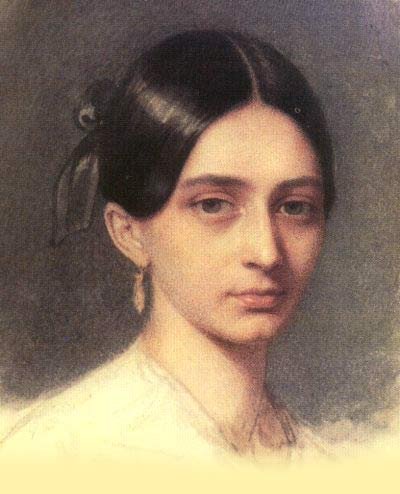
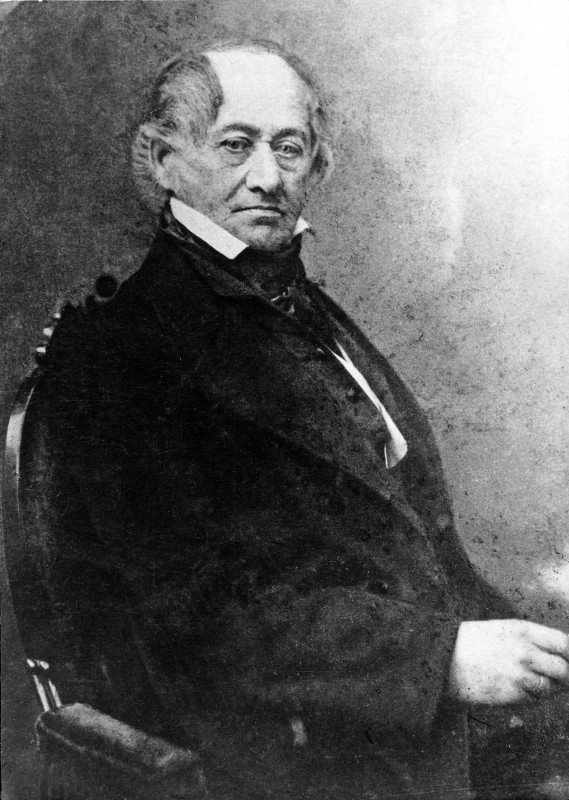
Clara was born in Leipzig, Germany, on 13 September 1819 as a result of Friedrich Wieck and Marienne Tromlitz's union. And, it's so distinctive Clara's musical life was not decided, like regularly happens, when she was a child, but before she even was born. His father, who owned a lending musical library and a little piano store, started a diary for her, suggesting her musical future. This authoritarian vision didn't find major opposition, because, on one side, miss Tromlitz was a singer and a pianist, and on the other hand, Clara was a quite and meek girl. She almost never went to school. Instead, she took personal classes of Reading, Writing, English and French in her house. Friedrich Wieck seemed not to be in favor children spent so much time closed learning unproductive subjects in hideous buildings.
Friedrich Wieck demand a lot from his pupils, but much more from his daughter, as she would be the star pianist of the family. He asked her to play 3 hours a day, every week. Although Clara was not weary with all the practice, she hadn't the spare time one normally have in childhood. Her tiny world just went around music. The hard work was worthwhile: at the age of 7, Clara was already able to play Carl Czerny's sonatas, Polonaises by John Field and other important opuses by recognized composers from that time.
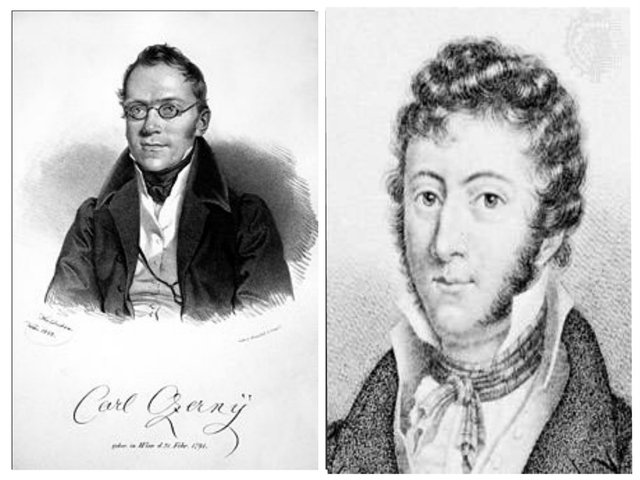
About how she was educated, the biographist Claude Samuel refers that his father always prioritized the mental and physical health of his students, adapting his working style to their personal motivations and learning abilities.
So, Clara gradually improved her pianistics abilities and got some popularity among Germany, knowing personalities as Wolfgang von Goethe, when she was 12 years old. Clara played in Goethe's house and the writer's impression didn't stop, saying: "This child is quite stronger than six boys all toghether". Later, Goethe gifted her a bronze bust of herself.
"She has an artistic vocation because she really has an artistic touch", said once the famous italian violinist and composer Niccolo Paganini about Clara. They met in Leipzig (her birthplace) in 1829 thanks to the German tour Paganini did that year. Taking the huge opportunity Paganini was around, she played for him the first piece of her first opus (a polonaise) and he declared: "it owns some strained elegancy, but anyway, a brilliant piece coming from a child."
What's more, she knew another contemparean prodigy: Franz Liszt. She faced the hungarian virtuoso in Viena in 1838 for the first time. In a private demonstration, Clara heard Liszt's talent: He's unbelievable, unique. He evokes frighten and wonder feelings on me, although he's a very kind artist. His figure on the piano is imposible to describe."
Dear Franz also had possitive comments about her art: "I just had time to know missy Clara Wieck, but she got a true superiority, a genuine and deep musical feeling. There's hundred times more creativity and real touch in her works, than in all Thalberg's fantasies."
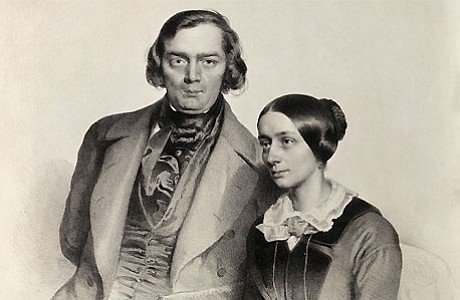
However, none of these future immortal musicians had such an impact on Clara's life, like Robert Schumann did. Little clue: he will become her husband. Since teenage years, Clara and Robert developed a lovely contact as he was a frequent Friedrich Wieck's student. 1832 was the time they took their issues to a next step openly through the intensive letters exchange and diary notes. Robert (10/05/1832): Clara! She's pretty. I like her so much. Clear and focused mind. Clara on a very sentimental line by the year 1833 : How can I live in peace if you do not visit me anymore?. Also, several years later, as passion had grown, Clara confessed to her lover: ... I will be yours forever-if not in this world, it will be in the other one-, I am so brave to endure everything... I only live to be with you.
This reciprocal admiration would keep growing greatly in spite of the barriers around, like the distance between them as Clara had been achieving, note by note, a glorious career giving concerts in Europe and, even more important, the Friedrich's negative perception on their relation. He did not agree at all with Robert-Clara's union because he thought Schumann as a weak and feeble man to face life circumstances and economically poor to sustain a possible marriage. It was so troublesome that valentines had to go to courts to determine their future. After some tense sessions, the judge decided in favour of the youth. Finally, the miraculous wedding took place on September 12th 1940, only one day before Clara's 21st birthday.
The romantic marriage had 8 children. Four of them had unlucky destinies, including the very young Emil, who died one year after he was born. Yet, no miserable events stopped Clara of rising her kids and giving Robert a pletoric life being such an inspiration and support for him. As a matter of fact, some biographists agree marriage's time was the richest for Robert, musically speaking. This can be confirmed when it is noticed that, beside pianos solo works, concerts, orchestral and chamber works bloomed incredibly since that period. Nevertheless, the more Robert composed, the less Clara did. She was so busy carrying the new roles of wife/mother, and making huge efforts of giving concerts in the European scene.
But, maybe Liszt was right when he said Clara had a deep musical feeling and loads of creativity, because against all the adversities (even those put by herself saying women are not made to compose), he first composed a breathtaking piano trio in 1846, and then, in 1853, as a birthday gift, variations on a theme of her husband inspired in the Bunte Blätter, opus 99, he wrote before. So, now let me show you what is a musical love declaration:
Only bad thing about the extraordinary love Clara felt for Robert was related to her inability to manage the early lost of her husband. Robert had so much pressure in his lifetime that he normally used drinks and cigarettes to calm himself somehow. Unhappily, those "methods" did not work so fine he soon suffered from nervousness, hallucinations with voices, piano sounds and more.. He tried to kill himself throwing down Rhine river, but he was rescued on time. All this issue led Robert asked his dear wife to intern him in an asylum till his last days. Marie, the first child of the marriage, was the main help for Clara to overcome the big pain she faced when Robert died in 1856 (and the one we have to thank for preserving letters).
Later, Clara built a solid friendship with the composer Johannes Brahm, a recurrent company of Schumanns. He was one of the essential reasons Clara kept on giving concerts around Europe, aside all the spiritual strength she got from her loved Robert and the necessity, must be say, of rising her children. Even one year before she left this world, she played unceasingly Robert's music, spreading a great variety of his productions among Europe. This wonderful woman closed her eyes after several strokes.
Clara Schumann's recognition in her country include small but beautiful things like the 100 Deutsche Mark banknote below, out since January 1st 2002 thanks the adoption of the euro.
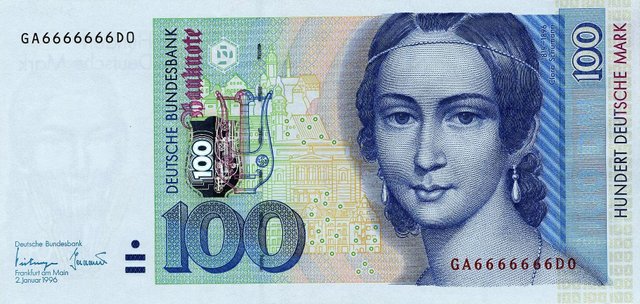
Futhermore, Schumanns' relation left an authentic artistic as well as a pedagogical important joy for the future times: the Schumann-House in Clara's hometown, Leipzig. Robert and Clara Schumann had their first joint flat on the piano mobile of this classicist building and lived there until 1844. On the first floor, where the artist couple lived, were oftenly arranged some exhibition rooms in which the life and work of the artist couple is documented. But today the building is used by the independent full-time primary school “Clara Schumann” with its artistic profile, and is full of life.
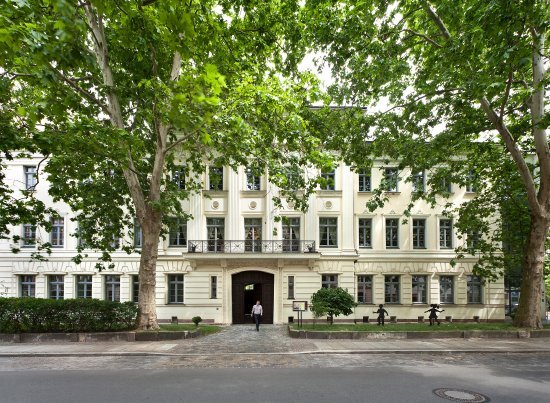

I wish it helped to expand your cultural knowledge.
References:
Clara Schumann: secret passions. Claude Samuel .
https://www.schumann-portal.de/SchumannHouse_in_Leipzig.html
Extra: in case you want to know more from Clara's music, here's a list of compositions by her.
- Op.1, Quatre Polonaises pour le pianoforte (1831)
- Op.2, 9 Caprices en forme de valse pour le piano (1832)
- Op.3, Romance variée pour le piano (1833)
- Op.4, Valses romantiques pour le piano (1835)
- Op.5, 4 Pièces caractéristiques for piano (1836)
- Op. 6, 6 Soirées musicales for piano (1836)
- Op.7, Piano Concerto in A minor (1836)
- Op.8, Variations de concert pour le pianoforte, sur la Cavatine du Pirate, de Bellini (1837)
- Op.9, Souvenir de Vienne for piano (Impromptu in G minor) (1838)
- Op.10, Scherzo No. 1 in D minor for piano (1839)
- Op.11, Trois Romances pour le pianoforte (1840)
- Op.12, 3 Songs (1841)
- Op.13, Sechs lieder mit begleitung des pianoforte (1843)
- Op.14, Scherzo No. 2 in C minor for piano (1845)
- Op.15, Quatre pièces fugitives (1845)
- Op.16, 3 Preludes and Fugues for piano (1845)
- Op.17, Piano Trio in G minor (1846)
- Op.20, Variationen über ein Thema von Robert Schumann for piano (1854)
- Op.21, Drei Romanzen für Pianoforte (1855)
- Op.22, Drei Romanzen für Pianoforte und Violine (1855)
- Op.23, Sechs Lieder aus "Jucunde" von Hermann Rollet (1855)
Congratulations @gabmr! You have completed the following achievement on the Steem blockchain and have been rewarded with new badge(s) :
You can view your badges on your Steem Board and compare to others on the Steem Ranking
If you no longer want to receive notifications, reply to this comment with the word
STOPVote for @Steemitboard as a witness to get one more award and increased upvotes!
Downvoting a post can decrease pending rewards and make it less visible. Common reasons:
Submit
Resteemed, your post will appear in the next curation with a SBD share for you!
Your post has been supported and upvoted from the Classical Music community on Steemit as it appears to be of interest to our community. We also support jazz and folk music posts!
If you enjoy our support of the #classical-music community, please consider a small upvote to help grow the support account!
You can find details about us below.
The classical music community at #classical-music and Discord. Follow our community accounts @classical-music and @classical-radio or follow our curation trail (classical-radio) at SteemAuto!
Delegation links: 10SP, 25SP, 50SP, 75SP, 100SP, 150SP, 200SP, 250SP, 500SP, 1000SP
Downvoting a post can decrease pending rewards and make it less visible. Common reasons:
Submit